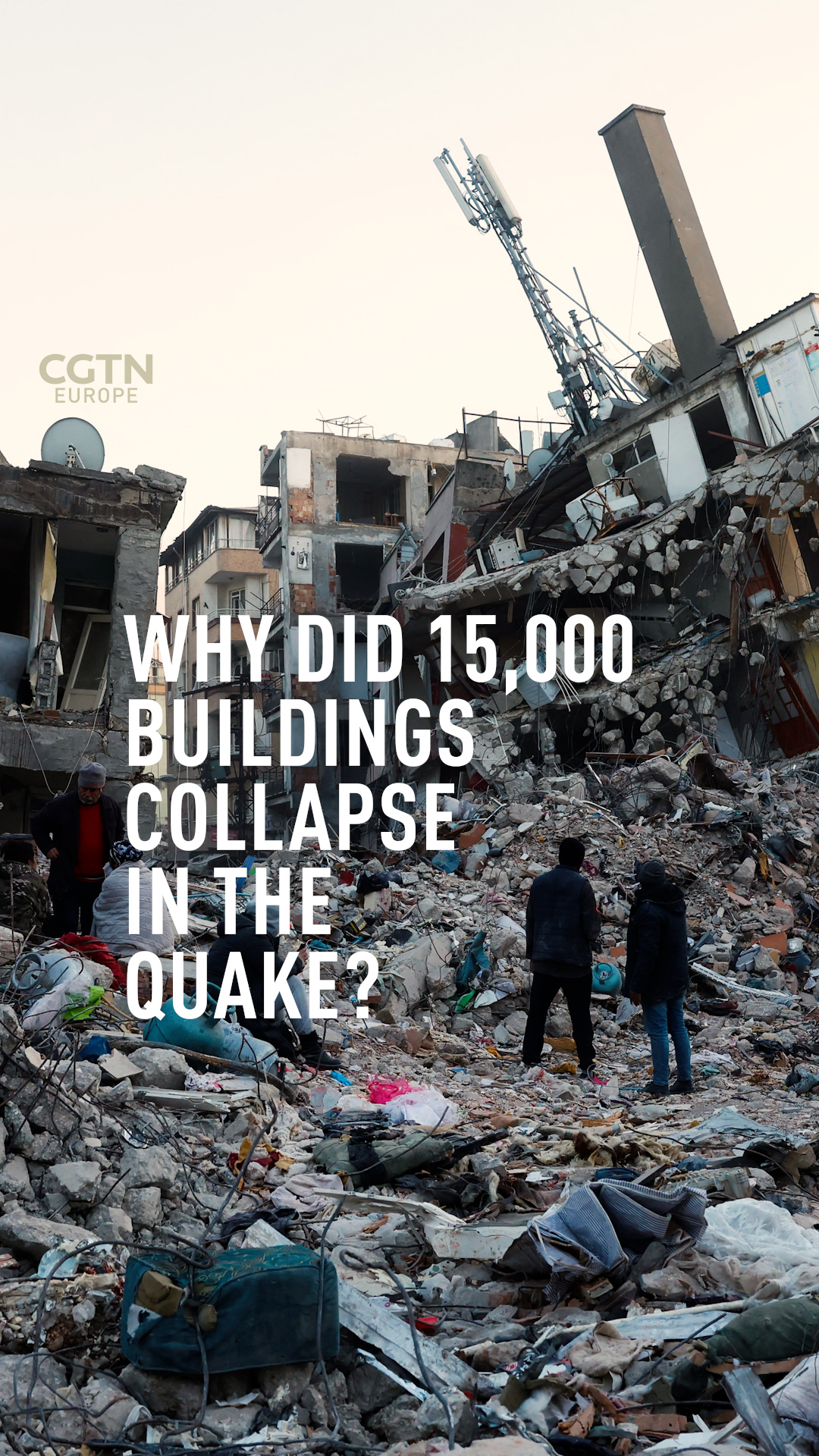
A young man sits outside his destroyed home following the deadly earthquake in Kahramanmaras, Türkiye. /Eloisa Lopez/Reuters
A young man sits outside his destroyed home following the deadly earthquake in Kahramanmaras, Türkiye. /Eloisa Lopez/Reuters
The United Nations has appealed for more than $1 billion to help more than 5 million people in Türkiye over the next three months following the devastating earthquake that has killed more than 36,000 people in the country's south.
Meanwhile, authorities in neighboring Syria have reported 5,800 deaths - a figure that has changed little in days.
UN aid chief Martin Griffiths, who visited Türkiye last week, said the people have "experienced unspeakable heartache," adding: "We must stand with them in their darkest hour and ensure they receive the support they need."
READ MORE
Hopes to find quake survivors dying
Poll: U.S. should lift Syria sanctions for disaster
The Secret Betrayal: China's WWII sailors
A teenage girl was pulled alive from the rubble in Türkiye more than 10 days after a devastating earthquake hit the region, but such rescues have become increasingly rare, leaving sorrow and anger to mount as hope dies.
The 17-year-old was extracted from the ruins of a collapsed apartment block in Türkiye's southeastern Kahramanmaras province, broadcaster TRT Haber reported, 248 hours since the 7.8 magnitude earthquake struck in the dead of night on February 6.
While several people were found alive in Türkiye on Wednesday, the number of rescues has dwindled significantly. Neither Türkiye nor Syria have said how many people are still missing.
For families still waiting to retrieve their lost relatives, there is growing anger over what they see as corrupt building practices and deeply flawed urban development that resulted in thousands of homes and businesses disintegrating.
Türkiye has promised to investigate anyone suspected of responsibility for the collapse of buildings and has ordered the detention of more than 100 suspects, including developers.
01:20

'Impact on people will not be over in three months'
Across the border in Syria, the earthquake slammed a region divided and devastated by 12 years of civil war.
The Syrian government says the death toll in the territory it controls is 1,414. More than 4,000 fatalities have been reported in the rebel-held northwest, but rescuers say nobody has been found alive there since February 9.
The aid effort has been hampered by the conflict and many people in the northwest feel abandoned as supplies almost invariably head to other parts of the sprawling disaster zone.
As of Thursday, 119 U.N. trucks had gone through the Bab al-Hawa and Bab al-Salam crossings since the earthquake, a spokesperson for the United Nations Office for the Coordination of Humanitarian Affairs said.
Meanwhile, a convoy of 15 aid trucks from Qatar reached the rebel-held town of Afrin, bringing desperately needed food, essential medicines and tents.
"Many people are injured and are in need of medical care. Those trucks contain the necessary medical devices to set up makeshift clinics," said Abdallah Rajab, a food security official with the Qatar charity.
Jagan Chapagain, secretary-general of the International Federation of Red Cross and Red Crescent Societies, said the crisis would be protracted and announced his organization would scale up its appeal more than three-fold for both countries.
"Its impact on people will not be over in three months, so we are having a 24-month perspective," he said in Beirut, on his way from Syria to Türkiye.
The potential economic impact of the earthquake in Türkiye could result in a loss of up to 1 percent of the country's gross domestic product this year, the European Bank for Reconstruction and Development said in a report.
U.S. bank JPMorgan estimated that the direct cost of the destruction of physical structures in Türkiye could amount to 2.5 percent of growth domestic product, or $25 billion.
Source(s): Reuters